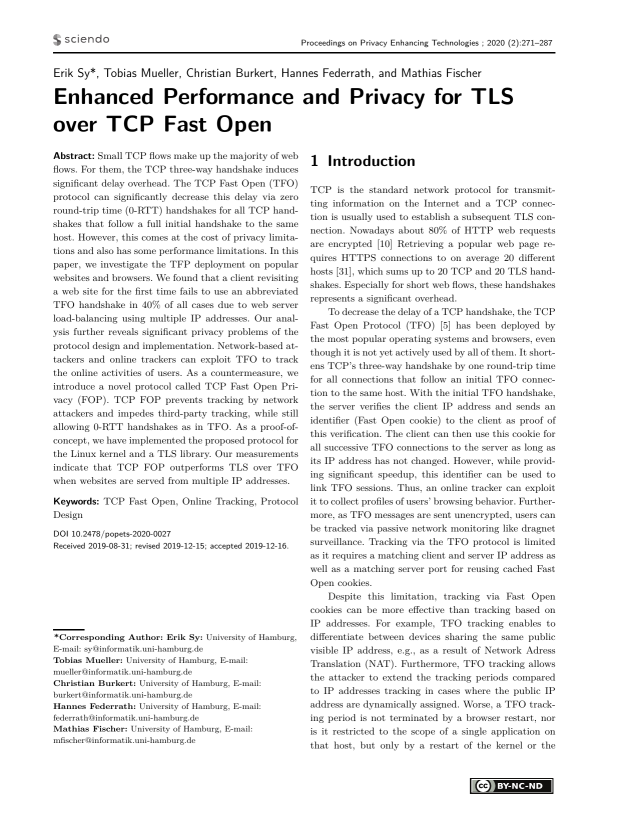Enhanced Performance and Privacy for TLS over TCP Fast Open
Authors: Erik Sy (University of Hamburg), Tobias Mueller (University of Hamburg), Christian Burkert (University of Hamburg), Hannes Federrath (University of Hamburg), Mathias Fischer (University of Hamburg)
Volume: 2020
Issue: 2
Pages: 271–287
DOI: https://doi.org/10.2478/popets-2020-0027
Abstract: Small TCP flows make up the majority of web flows. For them, the TCP three-way handshake induces significant delay overhead. The TCP Fast Open (TFO) protocol can significantly decrease this delay via zero round-trip time (0-RTT) handshakes for all TCP handshakes that follow a full initial handshake to the same host. However, this comes at the cost of privacy limitations and also has some performance limitations. In this paper, we investigate the TFP deployment on popular websites and browsers. We found that a client revisiting a web site for the first time fails to use an abbreviated TFO handshake in 40% of all cases due to web server load-balancing using multiple IP addresses. Our analysis further reveals significant privacy problems of the protocol design and implementation. Network-based attackers and online trackers can exploit TFO to track the online activities of users. As a countermeasure, we introduce a novel protocol called TCP Fast Open Privacy (FOP). TCP FOP prevents tracking by network attackers and impedes third-party tracking, while still allowing 0-RTT handshakes as in TFO. As a proof-ofconcept, we have implemented the proposed protocol for the Linux kernel and a TLS library. Our measurements indicate that TCP FOP outperforms TLS over TFO when websites are served from multiple IP addresses.
Keywords: TCP Fast Open, Online Tracking, Protocol Design
Copyright in PoPETs articles are held by their authors. This article is published under a Creative Commons Attribution-NonCommercial-NoDerivs 3.0 license.

